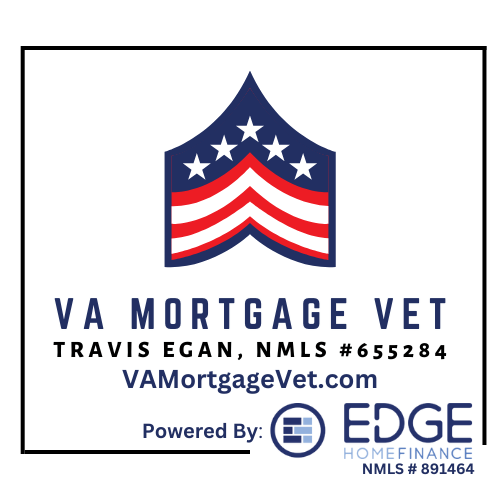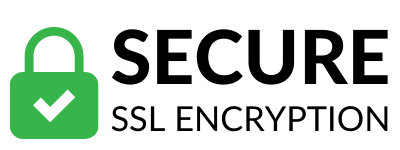
I Hate When Videos Play as Soon as the Page Loads...
CLICK the Video Below for a Welcome Message!

VA Home Loan Rates: What to Expect in 2024
As we're nearly half way into 2024, many veterans and active-duty service members are keeping a close eye on VA home loan rates. Understanding what to expect in the coming year can help you make informed decisions about buying a home or refinancing your current mortgage. Here’s a look at the factors influencing VA loan rates in 2024 and what you can anticipate.
“By failing to prepare, you are preparing to fail.” - Benjamin Franklin was a Founding Father of the United States, and inventor.
Current Economic Conditions
The economic landscape plays a significant role in determining mortgage rates, including VA home loan rates. Factors such as inflation, employment rates, and overall economic growth can influence interest rates. Here’s how some of these factors are expected to impact VA loan rates in 2024:
Inflation Trends
Inflation has been a major concern in recent years, affecting the cost of goods and services across the board. The Federal Reserve’s response to inflation, typically through adjusting the federal funds rate, directly impacts mortgage rates. If inflation remains high, the Fed may continue to raise interest rates, leading to higher VA loan rates. Conversely, if inflation eases, we could see a stabilization or even a reduction in rates.
Employment and Economic Growth
Strong employment numbers and robust economic growth generally lead to higher interest rates as the demand for loans increases. However, if the economy faces challenges and growth slows, the Federal Reserve might lower rates to stimulate borrowing and spending, potentially leading to lower VA loan rates.
Housing Market Trends
The housing market itself also influences VA loan rates. Supply and demand dynamics, housing affordability, and market competition all play a part in shaping the mortgage landscape.
The housing market in the US is facing challenges due to high home prices, tight inventory, and upcoming Realtor© commission changes. The median sale price for an existing home was $393,500 in March 2024, the highest on record. Mortgage rates have been rising in the first months of 2024, further denting affordability for would-be homebuyers. The Federal Reserve has held rates steady so far in 2024, signaling that rate cuts may be coming before the year is out
Housing Supply and Demand
A tight housing supply coupled with high demand can drive up home prices and, subsequently, mortgage rates. If more homes become available in 2024, we might see a cooling effect on prices and potentially more favorable VA loan rates.
Affordability and Competition
Affordability remains a key concern for many homebuyers. Rising home prices and higher interest rates can make it challenging to enter the market. However, if the market stabilizes and affordability improves, VA loan rates will likely move in your favor.
Government Policies and Actions
Government policies, particularly those related to housing and finance, can significantly impact VA home loan rates. Traditionally, in an election year, interest rates tend to go lower, but inflation is the factor preventing that now.
Federal Reserve Policies
The Federal Reserve’s monetary policy decisions are crucial. Any actions to adjust the federal funds rate will directly affect mortgage rates. In 2024, keep an eye on the Fed’s announcements and policy shifts, as these will provide clues about the direction of VA loan rates.
VA Loan Program Changes
While not as common, changes to the VA loan program itself can influence rates. For instance, adjustments to VA funding fees or eligibility criteria could affect borrower costs and the attractiveness of VA loans.
Market Predictions for 2024
Based on current trends and expert predictions, here’s what you can expect for VA home loan rates in 2024:
Slight Increases in Rates
Given ongoing inflation concerns and potential Federal Reserve rate hikes, slight increases in VA loan rates are possible in 2024. Borrowers should be prepared for modestly higher rates compared to the previous year.
Stable or Slightly Higher Rates
If the economy stabilizes and inflation is kept in check, VA loan rates might remain stable or see only minor increases. This scenario would be favorable for borrowers looking to purchase or refinance.
Tips for Securing the Best VA Loan Rates in 2024
Regardless of where rates head in 2024, there are steps you can take to secure the best possible VA loan rates:
Improve Your Credit Score
A higher credit score can help you qualify for lower interest rates. Pay down debt, make timely payments, and check your credit report for errors to boost your score.
Shop Around
Different lenders offer different rates and terms. Compare offers from multiple VA-approved lenders to find the best deal for your situation.
Consider Points
Paying points upfront can lower your interest rate. This involves paying a percentage of your loan amount at closing in exchange for a reduced rate. Evaluate whether this makes sense for your financial situation and long-term plans. A point is equal to 1% of the loan amount. If you are borrowing $400,000 for your loan, a point would equal $4,000. Consider asking the seller to pay this to get a lower interest rate.
Lock in Your Rate
If you find an attractive rate, consider locking it in to protect yourself from potential increases. Rate locks typically last for 30 to 60 days, but some lenders offer longer lock periods.
Conclusion
A variety of economic factors, housing market trends, and governmental policies will all have an impact on VA home loan rates in 2024. While slight increases in rates are possible, staying informed and taking proactive steps can help you secure the best possible terms. By improving your credit score, shopping around, considering points, and locking in rates when favorable, you can make the most of your VA home loan benefits.
FAQs (Frequently Asked Questions)
How can I get the best VA loan rate in 2024?
Improve your credit score, shop around for rates, consider paying points, and lock in a rate when it’s favorable.
Will VA loan rates increase in 2024?
The VA does not set the interest rates for their loans. The bond market for mortgage securities does. Rates may see slight increases due to inflation and Federal Reserve policies, but they could also remain stable if the economy stabilizes.
What factors influence VA loan rates?
Economic conditions, inflation, employment, housing market trends, and government policies all influence VA loan rates.
Is it a good time to buy a home with a VA loan in 2024?
It depends on individual circumstances, but understanding the market trends and securing a favorable rate can make it a good time to buy. As interest rates drop, the likelihood of home prices going up increases dramatically. If you can afford to buy in this market, you will likely see an increase in property value over time. Consult with Realtor© and Veteran Mortgage Advisor to see if now is the right time for you.
Can I refinance my VA loan in 2024 to get a better rate?
Yes, refinancing can help you obtain a better VA home loan interest rate if rates drop or your financial situation improves. It is important to keep in mind that you will have to wait 181 days after closing on your home before you can refinance a VA home loan if you used one to buy it.
For further advice on how to make sure your VA home loan process goes as fast and smoothly as possible, please read our article titled: How to Find the Best VA Home Loan Lender


Travis Egan
NMLS # 655284
Edge Home Finance
NMLS # 891464
1267 Eagles View Dr, Clarksville TN 37040
Travis Egan, VA Mortgage Vet
NMLS # 655284
1267 Eagles View Dr
Clarksville, TN 37040
(931) 208-6280
WE DON'T SLEEP UNTIL
THE MISSION IS COMPLETE

Edge Home Finance
NMLS# 891464
5868 Baker Road
Minnetonka, MN 55345
(763) 219-8484
Edge Home Finance is an Equal Housing Lender. We fully comply with the Equal Credit Opportunity Act (ECOA) and all other Federal regulations. All applicants applying for credit from Edge Home Finance will never be discouraged on the basis of race, color, religion, national origin, sex, military status, marital status, age, or because you get public assistance. All information we request is voluntary, and will be kept confidential. For more information on the ECOA, please visit:
http://www.ftc.gov/bcp/conline/pubs/credit/ecoa.shtm

© Copyright 2024 | Edge Home Finance | All rights reserved.
© Copyright 2024 | Edge Home Finance | All rights reserved.
